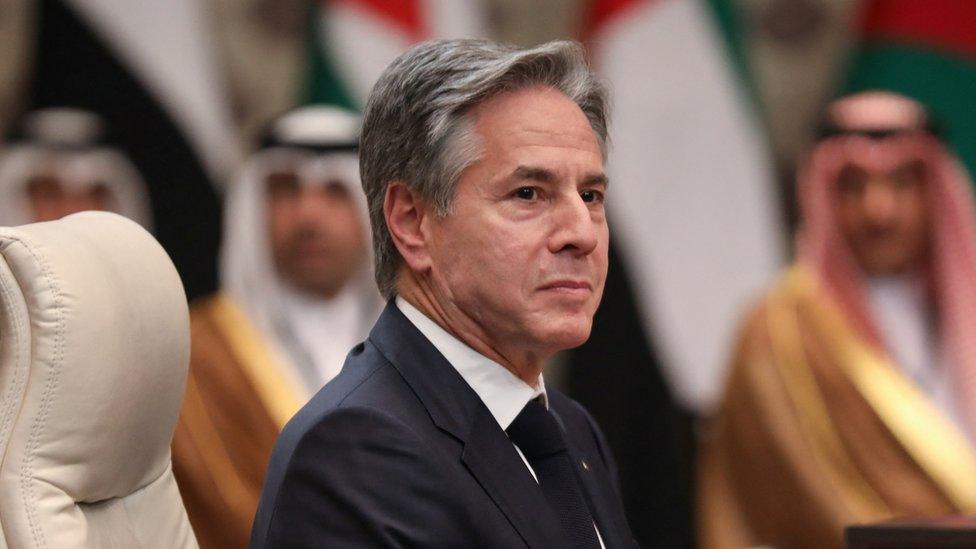The writers who reached out across the divide
- Published
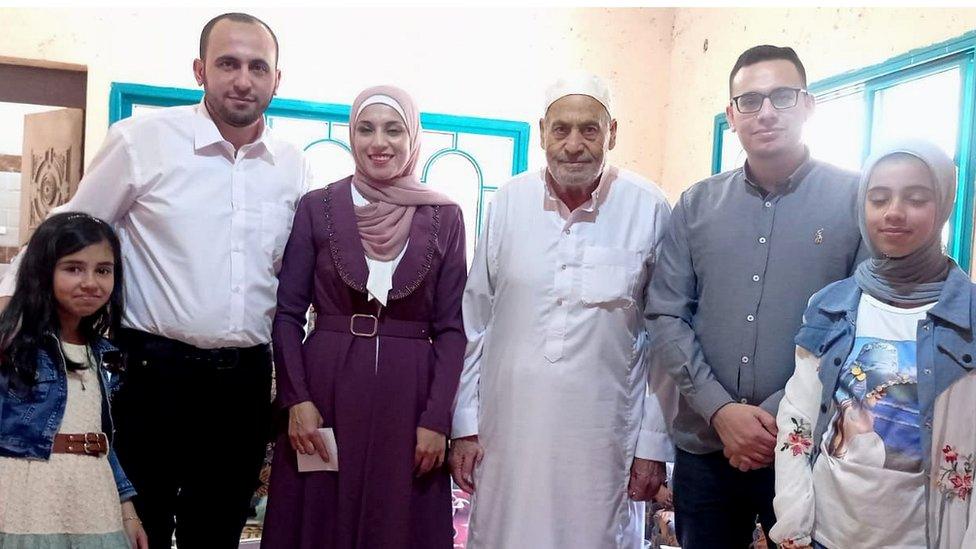
Ahmed, who had been sharing stories of life in Gaza, lost 21 members of his family when a missile hit their building
They were the same age and shared a common language. Not Arabic. Not Hebrew. Not English. But something larger than words, a humanity that extended beyond the tongue of any tribe.
Ahmed and Yuval. Palestinian and Israeli. Both 29 years old. Soft-spoken and intense, two writers who believed in describing things as they saw them. Ahmed lived behind a wall that confined two million people in the Gaza Strip. His friend Yuval lived on the other side in Jerusalem, the son of a middle-class Jewish family.
They were brought together by stories. Yuval read Ahmed's accounts of Palestinian lives in Gaza on another website and reached out to him with an idea. What if he could find Israelis to translate the stories into Hebrew?
"We talked for an hour and it was very, very interesting," recalls Yuval. "And when that hour ended, he told me, 'I never spoke to an Israeli person in my life.' And he said, 'Is it okay if I ask you some questions?' From the interviewer, I became the interviewee. And we spoke for hours on that first call."
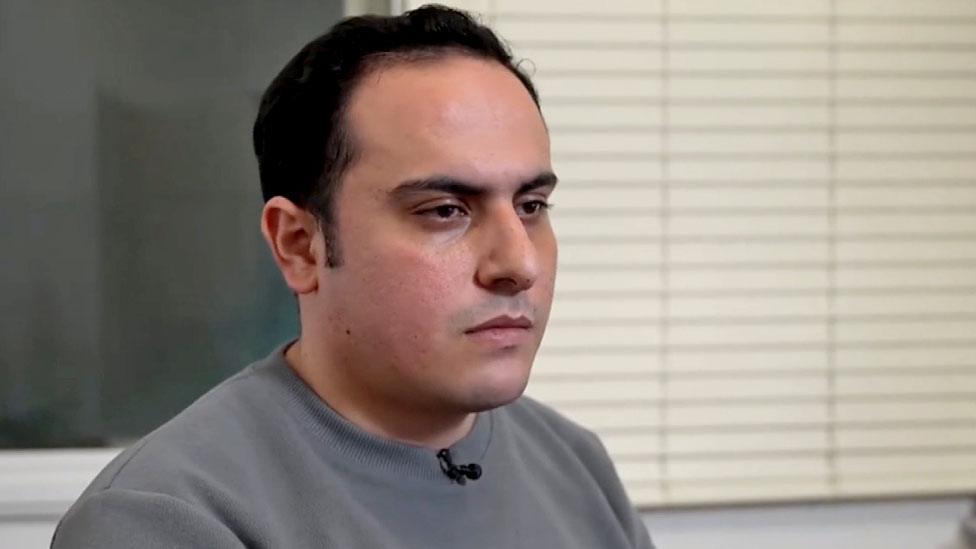
Ahmed advocated for peace in Gaza through his writing and encouraged fellow Palestinians to share their work
Together they founded Across the Wall on Facebook. The title comes from the 37 miles (59.5km) of border barriers, 7m (23ft) high, separating the Palestinians in Gaza from Israeli territory. All movement in and out of Gaza is controlled by Israel.
Ahmed encouraged Palestinian writers to share their work. Around two hundred Israelis volunteered to translate into Hebrew.
The posts could draw angry responses from Israelis. As both men tell it, "blame Hamas for your problems" was a frequent response.
"We have a bigger responsibility, a responsibility towards our families, our people in Gaza, who need a voice, and who need someone to call for justice for them," Ahmed says.
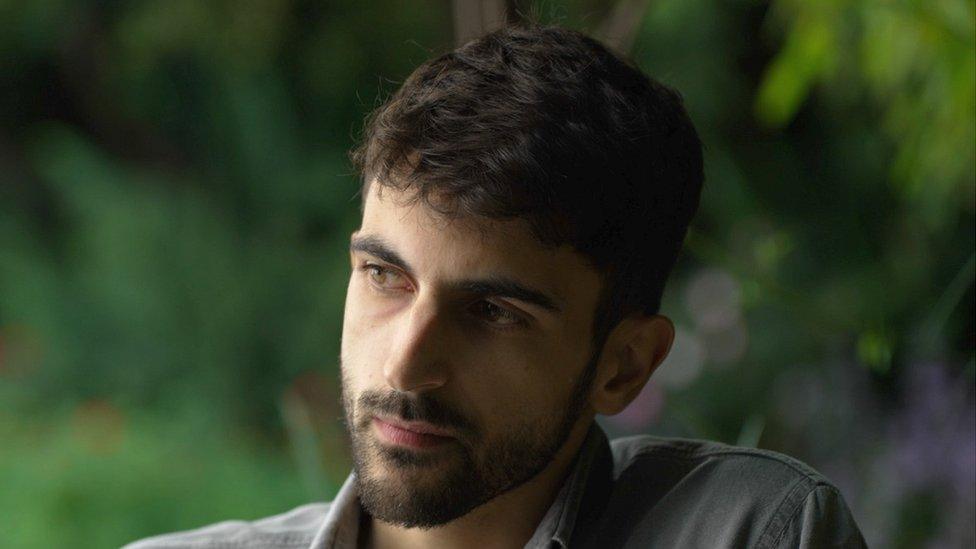
Yuval Abraham says the name ‘Across the Wall’ comes from the security barriers which separate Palestinians and Israelis
The decades long conflict has produced dozens of groups dedicated to creating links between Israelis and Palestinians, from non-governmental organisations campaigning against the construction of settlements on Palestinian land, to womens' groups advocating peace, and organizations forging ties between Palestinian and Israeli children.
Through all the years of conflict and political failure there have always been individuals and groups willing to try and stand - metaphorically - in the shoes of others.
"I am someone who hates wars," Ahmed says. "I am someone who passionately and wholeheartedly believes in peace, and peaceful resistance. I will never call for wars."
In 2019 Ahmed was given the opportunity to study in London. From there he continued writing online about Gaza.
Then came the moment that triggered a devastating war. On October 7, Hamas attacked Israel killing 1,400 Israelis, the vast majority of them civilians. More than 200 Israelis were kidnapped and are still being held hostage in Gaza. Israeli society was traumatised.
Vowing to destroy Hamas, the IDF (Israeli Defence Forces) launched a campaign of relentless airstrikes. A ground offensive would follow.
From London, Ahmed monitored the news, thinking constantly of his family, besieged in Gaza. His relatives had gathered together for safety in the same apartment.
Two weeks into the war, on 22 October, a missile hit the building killing 21 members of Ahmed's family. He lists the dead; "My father, two brothers, three sisters, 14 nieces and nephews who are children, who are kids under the age of 13."
His mother had died of cancer three years earlier. All of a sudden he was alone.
"Unless you have experienced what I have, you cannot understand what I am going through," he says. "I would not wish what has happened to me to happen to anybody, not to my worst enemy."
In the photographs taken with his lost family, Ahmed's eyes are bright and happy, particularly with the young nephews and nieces he played games with and to whom he gave treats.
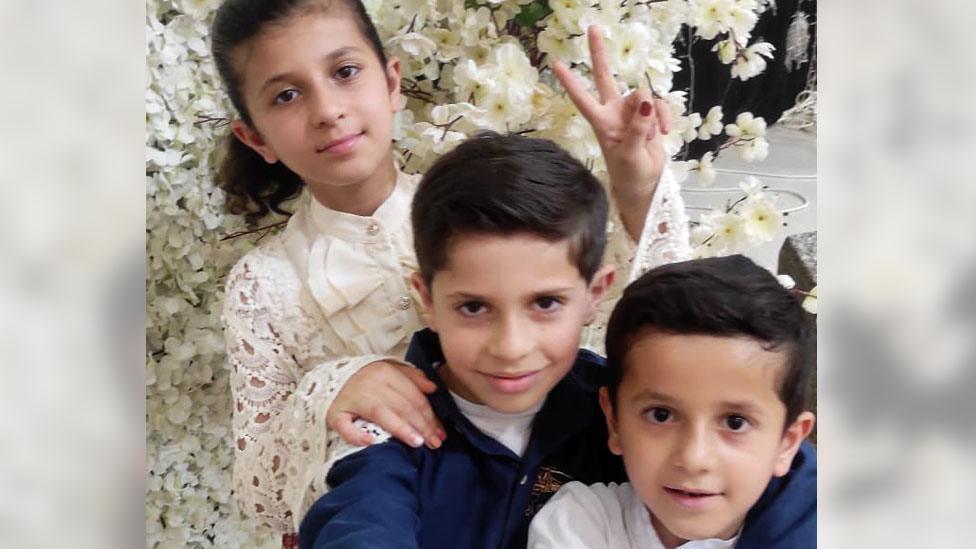
Ahmed's niece and two nephews Tamim, Mohamad and Malak Bashir are among thousands of children who have been killed
These days Ahmed is constantly anxious and restless. He takes pills to try and help him sleep. "This is my life now," he says.
When Yuval saw the news about Ahmed's family, at first he struggled to find the words to respond.
"And from that moment, I cried." Yuval says."I spent the entire day trying to write him something. I didn't really know what to say. I said how sorry I felt."
Several days passed and Yuval began to wonder if he would ever again hear from his friend.
Then came a voice message. It was Ahmed, his voice wracked with grief, but still a friend. He thanked Yuval for being in touch and said he respected him even more now. Ahmed said he was able to differentiate between Yuval and the Israeli pilot who dropped the bomb that killed his family.
When I meet Yuval in Jerusalem he is careful not to try and speak for his friend. I want to know if they will work together in the future.
"I think you have to ask him," Yuval responds. "For me, I will. As I said to him, 'I made a commitment to you. I will not stop'."
The stand Yuval takes is not without consequences. He has lost friends because of his advocacy of Palestinian rights. In the current heightened atmosphere of the war he is aware that the threat of violence "feels much closer than it was a month ago."
When I put the question to Ahmed - will he write for an Israeli audience again? - he is cautious.
"I don't know if I will continue working for Across the Wall or not because right now, I feel a sense of failure. I believe that we failed in Across the Wall… our aim was to prevent these wars from happening, but we have failed.
"So right now, I don't know, how will I convince other Palestinians to write for Israelis after the massacres that they have endured, after the loss of lives and house?"
But then he tells me that he will keep writing.
Ahmed cannot be consoled with vague platitudes about peace and understanding. But the work he does with Yuval provides a glimpse of light in a time filled with pain.
"I want us to have a decent human life," he says. "We deserve it."

More on Israel-Gaza war
Follow live: Latest updates
From Gaza: Palestinian given two hours to evacuate whole neighbourhood
From Israel: Pain still raw a month after Hamas attacks
History behind the story: The Israel-Palestinian conflict

With additional reporting from Haneen Abdeen, Alice Doyard, Morgan Gisholt Minard in Jerusalem
Related topics
- Published5 November 2023
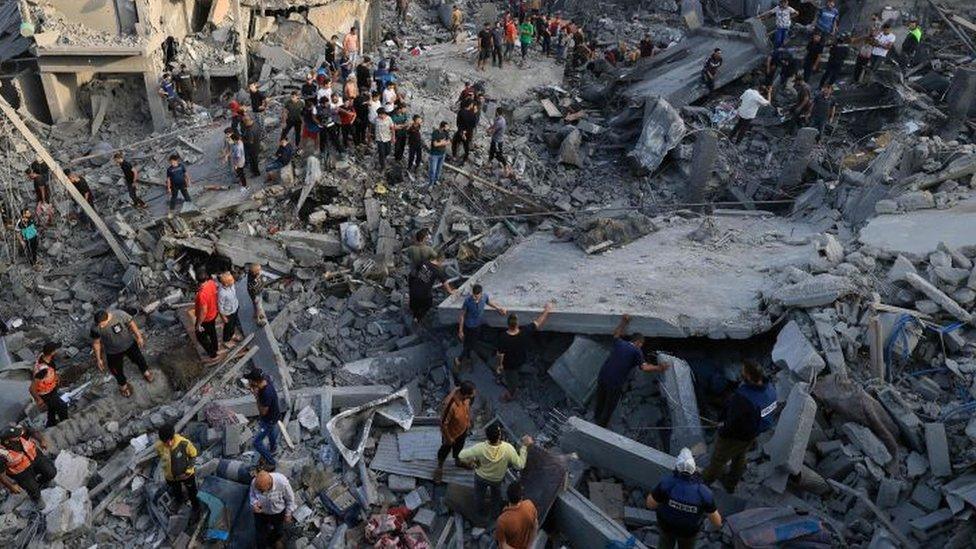
- Published6 November 2023
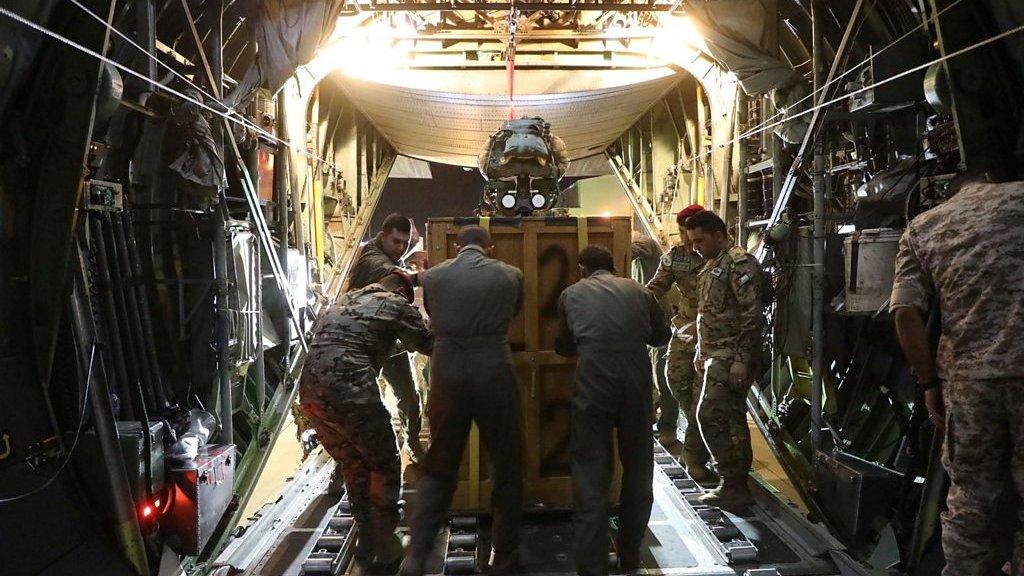
- Published4 November 2023
